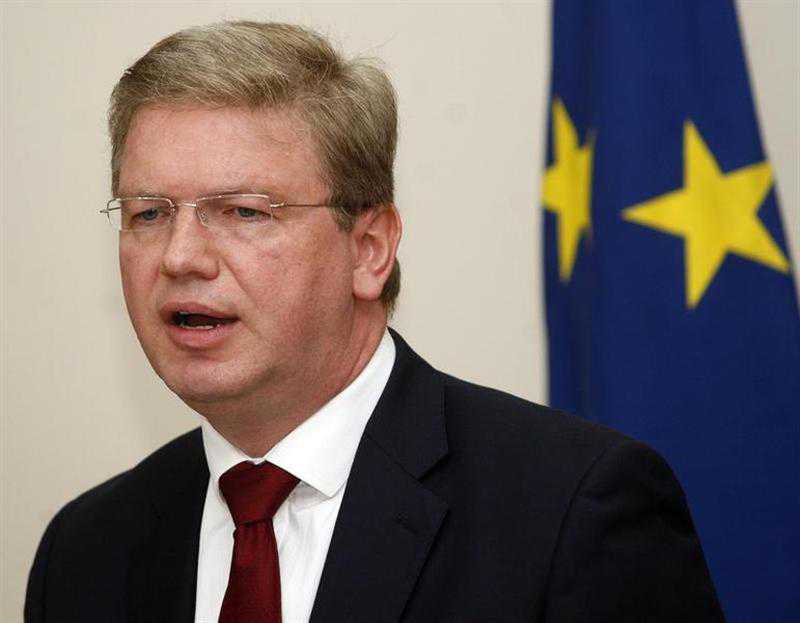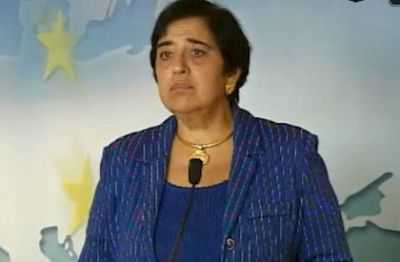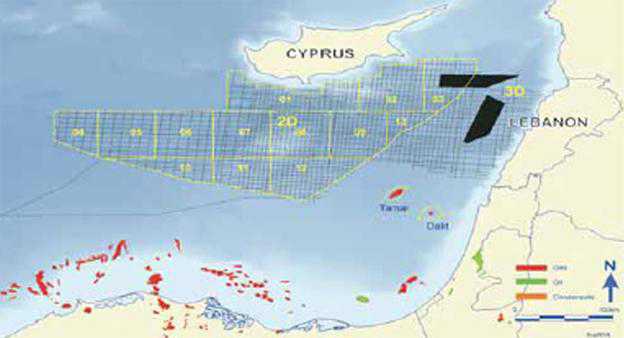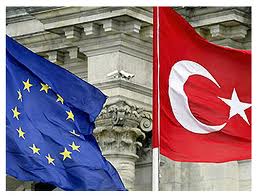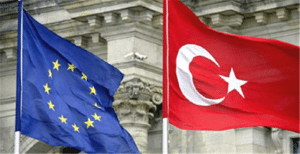European Commissioners Fule and De Gucht visit Istanbul to strengthen new EU agenda with Turkey
The renewed positive agenda between the European Union and Turkey will be the main focus of the joint visit of European Commissioner for Enlargement and European Neighbourhood Policy, Štefan Füle, and European Commissioner for Trade, Karel De Gucht, to Istanbul on Thursday 17th and Friday 18th November.
Both Commissioners will meet representatives from the Turkish government, the business community and civil society.
“Our meetings will focus on the many things EU and Turkey have in common”, Commissioner Füle said before the trip. “We cooperate in so many fields, we are interlinked in so many ways and that’s why the fundamentals between the EU and Turkey are solid,“ he stated and added “But we need a renewed agenda which would focus on how to inject new life into our relations in general and into the accession process in particular.”
Commissioner De Gucht stated, “We are witnessing ever increasing trade flows between the EU and Turkey – undoubtedly helped because of the EU-Turkey Customs Union. Turkey is now the EU’s 7th largest trading partner and I believe there’s still huge potential left untapped and so I look forward to working with my Turkish partners to examine ways of improving and making more effective this extremely important trade relationship.”
Turkey has opened negotiations with the EU in 2005 but since then only a limited number of accession chapters have been opened. Commissioner Fule will speak on the new positive agenda in more detail in the meetings with Vice-Prime Minister Ali Babacan, Minister for European Affairs Egemen Bagis and Minister of Economy Zafer Caglayan together with Commissioner De Gucht who will focus on mutual efforts to boost trade relations between the EU and Turkey.
The new positive agenda was mentioned in the Progress report 2011 for the first time and since then Štefan Füle stressed at several occasions that it is not to replace, but to complement the accession process.
Both Commissioners will participate and give keynote speeches at the conference on “Turkey-EU: Common Interests Revisited”, organised by the Turkish Confederation of Businessmen and Industrialists (TUSKON) and the European Policy Centre (EPC). The objective of the conference is to discuss common interests of Turkey and the EU in a number of areas, ranging from the economy, to foreign policy and democracy – and to unveil ways to advance relations in these fields.
Background
EU – Turkey key dates
September 1959 – Turkey applies for associate membership of the European Economic Community (EEC).
September 1963 – Signature of the association agreement (known as the Ankara Agreement), aiming at bringing Turkey into a Customs Union with the EEC and to eventual membership.
April 1987 – Turkey applies for full membership to the EEC.
1995 – Turkey – EU Association Council finalises the agreement creating a customs union between Turkey and the EU.
December 1999 – Turkey obtains status of an EU candidate country.
December 2004 – The European Council defines the conditions for the opening of accession negotiations with Turkey.
October 2005 – Opening of accession negotiations with Turkey.
December 2006 – The Council decides that 8 negotiating chapters can not be opened and no chapter can be closed until Turkey meets its obligation of full, non-discriminatory implementation of the additional protocol to the Association Agreement
Facts and figures EU-Turkey trade
The EU is Turkey’s most important trading partner, for imports as well as for exports. Turkey is the EU’s 7th biggest import market and its 5th biggest export market. In 2010, the EU imported goods and services worth €42bn from Turkey, mainly machinery and transport equipment, but also manufactured articles, e.g. textiles. EU exports of goods and services to Turkey amounted to €61bn in 2010, most importantly machinery and transport material, chemical products as well as manufactured goods. Between 2008 and 2010, Foreign Direct investment (FDI) inflows from Turkey to the EU amounted to €2.1bn, whereas EU FDI flows into Turkey were €14.7bn in 2008 – 2010.
Fore more info:
EU – Turkey relations
EU -Turkey trade relations
via European Commissioners Fule and De Gucht visit Istanbul to strengthen new EU agenda with Turkey – World News Report.

